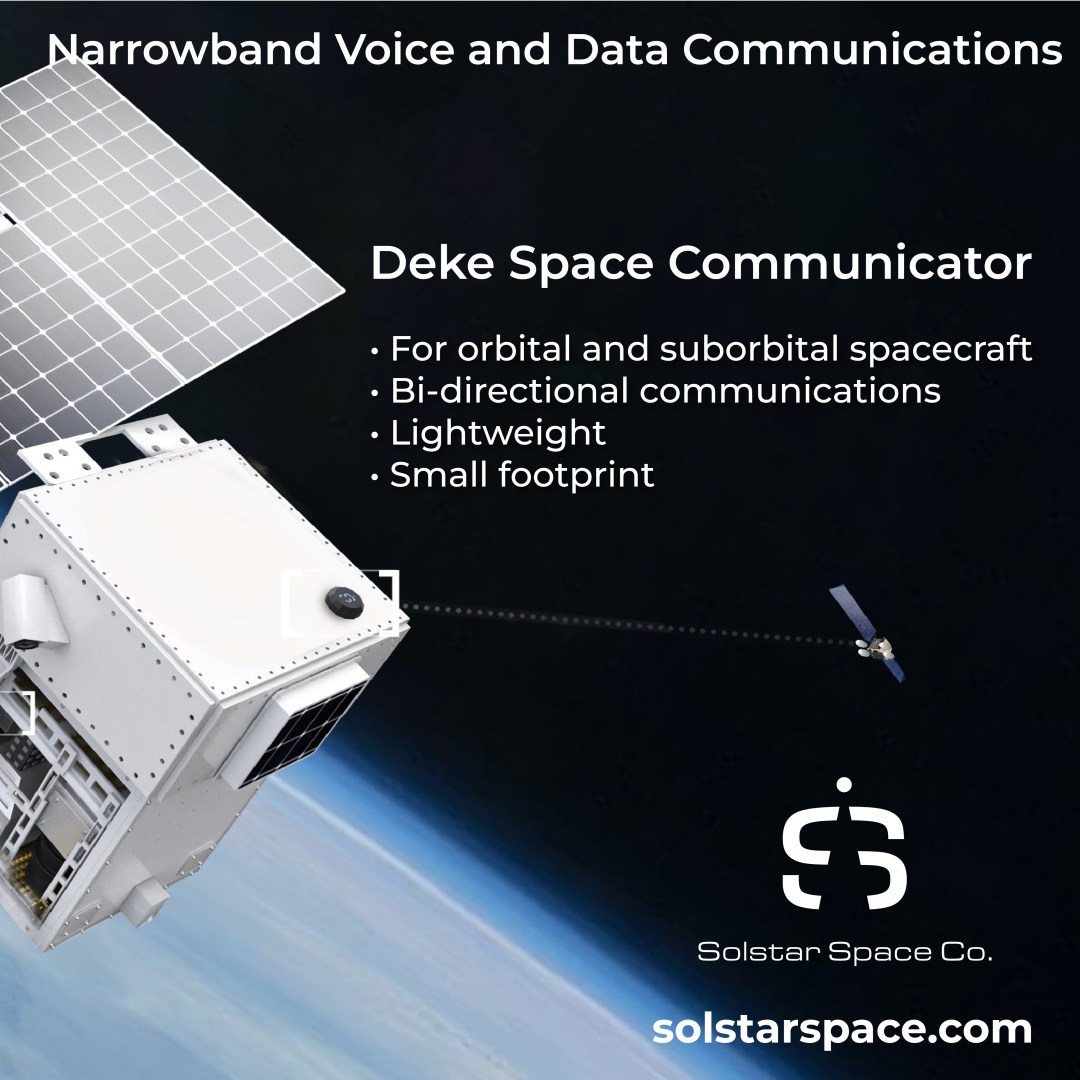
Solstar Space (Solstar) will continue the development of the company’s Critical Data Relay Spacecraft Operational Status (CritDR-SOS), also known as the Deke Space Communicator (Deke), under a Phase II Small Business Innovation Research (SBIR) contract valued at $1,249,269.
Solstar’s small form-factor Deke integrates with a spacecraft’s Telemetry, Tracking and Command (TT&C) system to provide bi-directional, continuous, internet-based, monitoring of the spacecraft’s bus, payload, and environment. It also allows for satellite connectivity with operators or end users using robust commercial communications paths which will help eliminate spacecraft situational awareness gaps.
“Monitoring an endlessly growing number of satellites including commercially owned and operated mega-constellations is a top priority for the U.S. Space Force. With Solstar’s Deke, the Department of Air Force (DAF) can connect space assets which makes the communications network more resilient. This effort has the extended benefit of aligning with the Federal Communications Commission (FCC) recent directive to have de-orbiting capability on-board all spacecraft which Deke facilitates. Deke enables narrowband communications for both uplink and downlink, decreasing the time it takes to download mission data or adjust on-orbit systems. It also enables 24/7 awareness of satellite health by combining the Solstar Deke along with New Mexico Tech’s Spacecraft Health Monitor.” — Brian Barnett, CEO, Solstar Space
“New Mexico Institute of Mining and Technology (NMT) is developing a Spacecraft Health Monitor (SHM) that will connect to the Deke to send and receive spacecraft data. This will provide detailed spacecraft operating data and provide proactive alerts so any faults can be addressed efficiently.” — Dr. Andrei Zagrai, Professor at New Mexico Tech.
